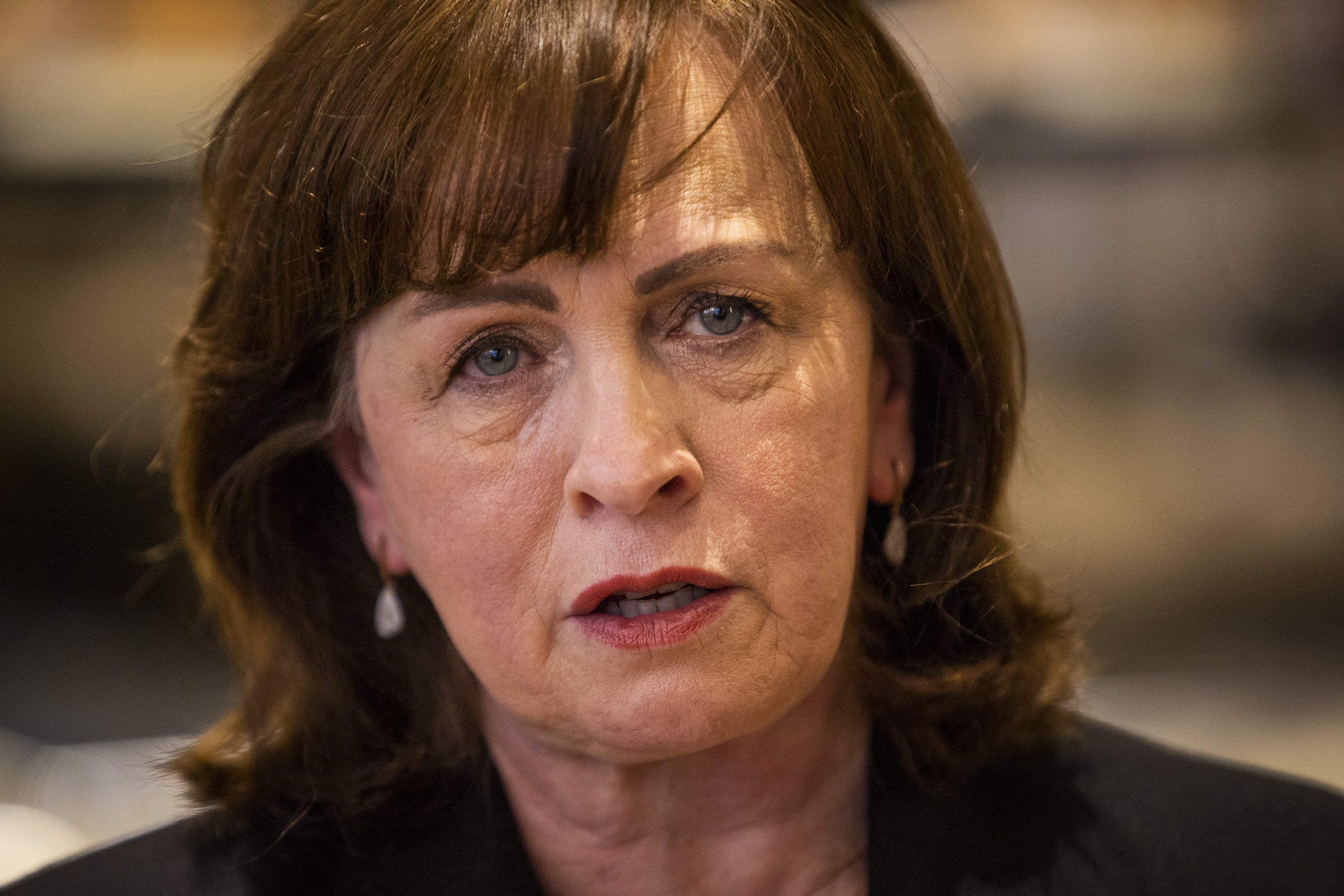DUP presses UUP to commit to back planned veto of Integrated Education Bill
The UUP has so far not commented over whether its MLAs will back a petition of concern to scupper the Bill.

The DUP has pressed the UUP to commit to back a planned attempt to veto a Bill to promote integrated education in Northern Ireland.
Alliance MLA Kellie Armstrong proposed the private member’s Bill which proposes the setting of minimum targets for the number of children being educated in officially integrated schools.
It also proposes providing dedicated funding for facilitation of the sector.
The Bill is set to reach its final stage in the Stormont Assembly on Wednesday.
However the DUP has vowed to use a Petition of Concern to stop the Bill.
The DUP has tabled a Petition of Concern and those who claim to be opposed to the Bill must take a firm stand and add their name to the PoC
The party has 25 whipped MLAs, which is short of the 30 signatures needed for a Petition of Concern.
TUV leader Jim Allister and independent unionists Alex Easton and Jim Wells are expected to sign the petition of concern.
Sinn Fein has criticised the DUP’s plan to try and veto the Bill.
DUP MLA Diane Dodds has challenged the UUP and independent MLA Claire Sugden to say they will back the petition of concern, claiming failing to do so “would be a dereliction of duty to 93% of pupils in Northern Ireland”.
The UUP so far has made no comment on the matter.
Around 7% of children and young people in Northern Ireland are educated at schools within the official integrated sector.
Many schools’ representative bodies are opposed to the Bill, claiming that the proposed legislation is flawed and will educationally disadvantage more than 90% of pupils.
Mrs Dodds has claimed the Bill will “segregate” the education system and elevate one sector over the others.
“It is bad law.
“I want to see children educated together but this Bill will penalise Controlled and Maintained schools because they have the wrong sign above the door not because of any failing with inclusion,” she said.
“Even controlled schools with children of all faiths and none, schools with pupils from 20 different language backgrounds, will be consigned to old dilapidated classrooms just because they are not in the ‘integrated’ sector.
“The DUP has tabled a Petition of Concern and those who claim to be opposed to the Bill must take a firm stand and add their name to the PoC.
“A failure to do so would be a dereliction of duty to 93% of pupils in Northern Ireland.”
Earlier Northern Ireland’s Children’s Commissioner Koulla Yiasouma said no school or sector has anything to fear from the Bill.
“The truth of the matter is that no one, nor any sector, has anything to fear from this Bill,” she said.
“The Integrated education sector has been the Cinderella of the sectors for too long and this Bill simply attempts to level the playing field so integrated education can become a viable choice for parents and children.”
Ms Yiasouma said in 2020 some 21% of pupils who selected integrated schools for their post-primary selection were not successful in securing a place according to Department of Education statistics.
She said the Bill: “Will make law, intentions that have already been enshrined in legislation 33 years ago and endorsed by the Belfast/Good Friday Agreement.
“This Bill is therefore simply progressing the promise that political parties made when signing the Agreement.”
The Petition of Concern mechanism was a peace process construct designed to offer protections for minorities but it has become regarded as controversial with parties using it for issues unrelated to the traditional community divide, such as on same-sex marriage and to prevent the censure of party ministers.
Bookmark popover
Removed from bookmarks